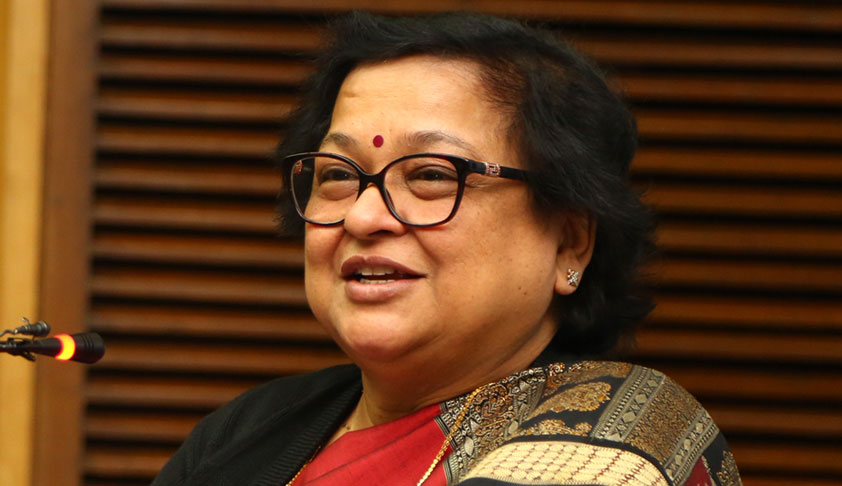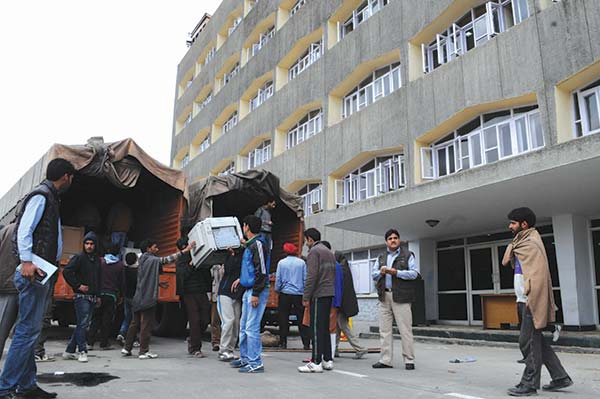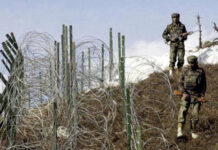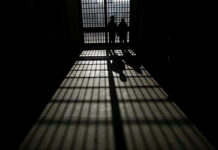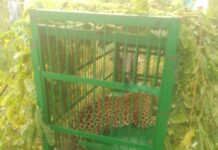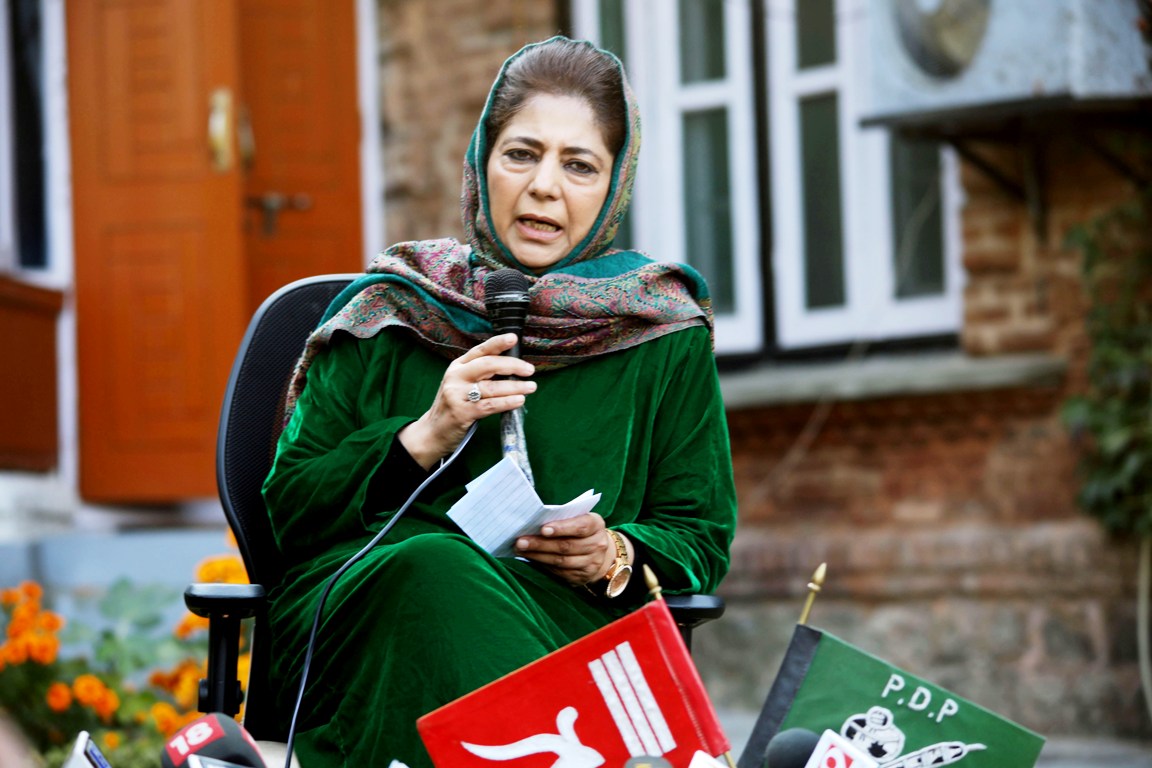by Saima Bhat
SRINAGAR: The High Court of Jammu and Kashmir which is presently working through the video conferencing from its Jammu premises, on Tuesday passed judgment with suggestion and recommendations and asked the government to decide if they want to continue with the annual Darbar move, which according to the bench is more than Rs 200 crore annual exercise and “wastage” of state exchequer.
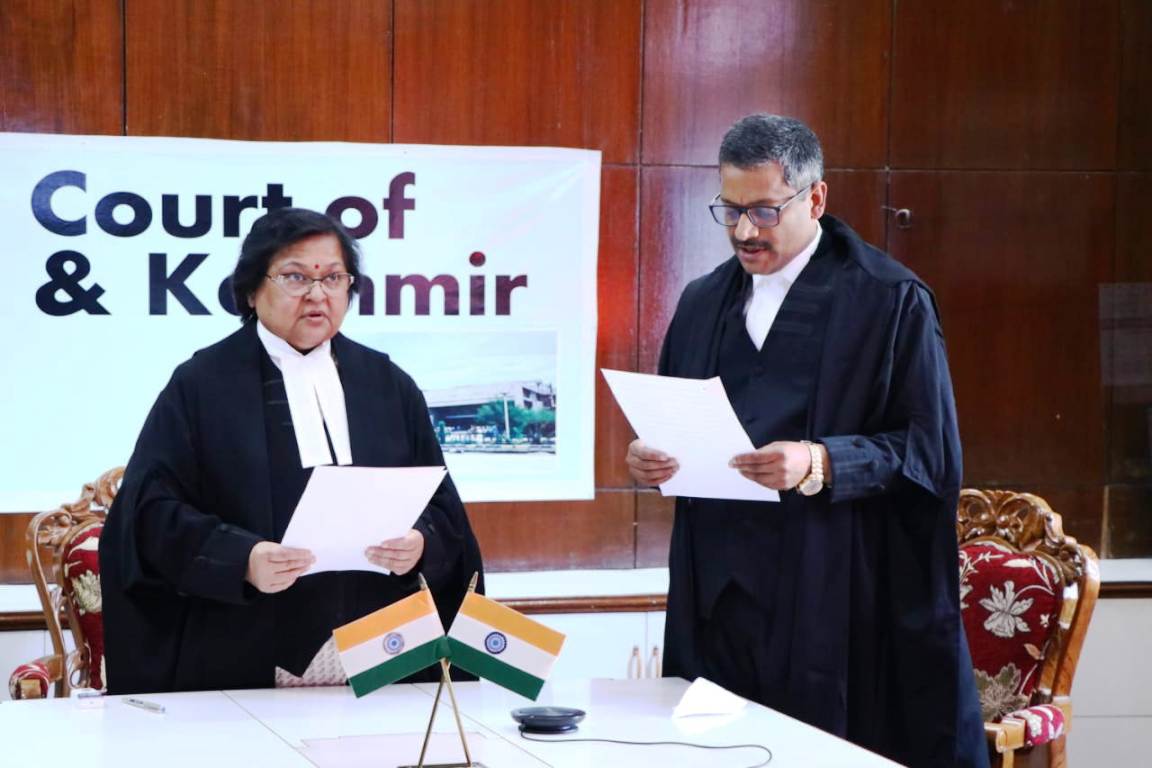
The judgment by a division bench comprising chief justice Gita Mittal and judge Rajnesh Oswal have recommended that their suggestions should be sent to the Secretary, Ministry of Home Affairs, Government of India, Shastri Bhawan, New Delhi with the direction to place the same before the competent authorities for examining the issues raised and taking a considered decision thereon. Besides, the direction said it should be served upon the Chief Secretary of the Union Territory of Jammu and Kashmir with the direction to place the same before the competent authorities for examining the issues raised and taking a considered decision thereon.
This 93-page judgement was passed in presence of senior counsel advocate Z A Qureshi and advocate Mian Tufail and Monika Kohl. It is said that the court passed the judgement by taking its own motion.
The Darbar Move was an arrangement of shifting the capital because of the concerns of weather and the harsh winter in Srinagar which was implemented by the Maharaja in the year 1872. The judgement reads that, “It neither involved an issue of any administrative exigency or consideration of more effective or efficient governance. The continuance of this practice long after the rule of the Maharaja came to an end is not premised on any such consideration. When commenced, the Darbar Move involved some officers and records in a few cartloads. Today it involves shifting of nearly 151 government departments and over 10,000 government personnel (including officers, staff and employees of every category), reportedly thousands of official documents and equipments including computers and even pieces of furniture are packed in bundles, cartons and metallic trunks loaded in over 150 trucks and transported for over 300 km between Jammu and Srinagar, twice a year. All this is at a cost hundreds of crores of rupees to the public exchequer.”
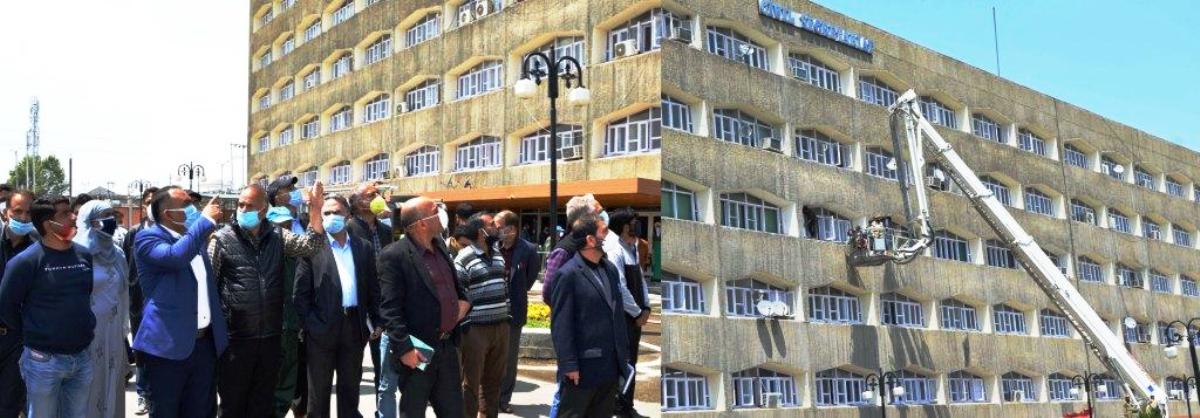
The judgement has recommended.
- There is no reason or grounds are forthcoming for enabling and supporting considerations of administrative efficiency, legal justification or Constitutional basis for effecting the Darbar
- Both the Jammu as well as the Srinagar regions equally require administration and governance round the year without interruption. It is unfair and opposed to public interest to deprive either region completely of access to government machinery for six months at a time.
- For a period of almost six weeks annually, the entire governance and administration in the UT comes to a grinding halt creating a governance deficit. The sensitivity of the issues with which the UT government is engaged can ill afford this gap in governance. This is glaringly opposed to every element of public interest.
- Given the modern weather control mechanisms, clearly the consideration of extremities of weather, which was the case, reason and basis for the Darbar Move, does not hold weight today. This justification of the Darbar Move has lost all relevance.
- Valuable documents and resources of the Union Territory in the nature of important and sensitive government documents are put to tremendous risk in the process of their transportation as they are packed in trunks and carried in hired trucks over a distance of 300 kms between Jammu and Srinagar and vice-vice twice a year. This practice may have the consequence of imperilling state and national security.
- On account of technological advancements and availability of electronic modes, maintenance of record and communication, there is no need for physical conveyance of assets.
- Information technology integrates disjoint units into single units virtually. Therefore, even if the secretariat and departments were divided and placed at different locations, they could be virtually unified into a single Secretariat with minimal movement of human resources.
- In view of the large scale logistics involved today, the economic burden of the Darbar Move is not justified by the original considerations of the weather.
- Thousands of government employees are compelled to live apart from their families for six months at a time resulting in physical and emotional pressure not only on the employees but spouses, parents, children and dependants. This has an exponentially negative impact on emotional health of the employees and their families and would contribute to dejection and lack of interest in assigned tasks of the Darbar Move employees.
- The administrative requirement of the biannual shifting of the employees year after year as part of their conditions of service to effectuate the Darbar Move is manifestly arbitrary and is hit by Article 14 of the Constitution of India.
- The Darbar Move places a huge burden on the police, security forces in the Union Territory. Security provisions relatable to the Darbar Move are also at a phenomenal undesirable cost (of both financial and manpower), to the nation and to the public exchequer which ought not be countenanced in public interest.
- Right to life, education, health, good environment are amongst the several essential concomitants of the right to life guaranteed to the people of Jammu and Kashmir under Article 21 of the Constitution of India. The UT is unable to provide to all its people even basic essentials including those of education and healthcare, judicial infrastructure resulting in violation of the right to life of the people. Valuable resources of the State – financial and physical cannot be diverted to completely non essential usage.
- There is unwarranted disruption of movement of traffic and personnel on the National Highway for four days on each Darbar Move adversely impacting public interest.
- Jammu and Kashmir already suffers from high fiscal deficit and the expenditure on the Darbar Move is an unwarranted burden on the depleted resources of the UT. The Darbar Move is an unwarranted drain on the public exchequer and the taxpayers’ hard-earned contributions.

Chief Justice Jammu and Kashmir High Court, Justice Geeta Mittal - The expenditure involved is in the nature of mis-utilisation of valuable public resources which are urgently required for public purposes, say for instance, the imperative and pressing needs of upgrading public health facilities, and upgrading all health installations. A large financial outlay is required to meet the immediate needs to address Covid-19 issues including health, infrastructure, transportation, technology, security, social welfare, unemployment, food to name just a few.
- Looked at from any angle, the Darbar Move results in wastage of tremendous amount of time, efforts and energy on inefficient and unnecessary activity (say, packing of records). It nurtures inefficiency and leads to lack of governance. It also has a huge financial cost in terms of salary paid to employees who spend weeks on this unproductive work. It is a practice which works to the detriment of the larger interest of all the people.
- No reason or justification at all is available for requiring the judiciary to shift with the Darbar The same negatively impacts justice dispensation and impedes judicial administration.
- The Darbar Move causes delay in justice dispensation as government records are not available to the pleaders in one region for six months at a time.
- Non-availability of the record with the government pleaders in the Wing other than the Main Wing, per force compels them to seek repeated adjournments as they are unable to file their responses in civil cases or conduct criminal prosecutions for want of government record. The Darbar Move therefore adversely effects the fundamental right of access to justice of the public as guaranteed under Article 21 of the Constitution of India.
- Keeping in view the public interest and to enable continuous efficient governance, it is essential that movement of employees and physical assets be minimized. Rationalisation of the Darbar Move is urgently required.
- The spread of Covid-19 infection imperils the Union Territory; the consequential lockdown has compelled enforcement of the ‘Stay at Home and Work from Home’ situation, social distancing has become necessary norm. These circumstances compelled the Government’s conclusion in the order dated 17th April 2020 that the Darbar Move could have dangerous consequences. For this reason as well, the Darbar Move is been rendered unworkable.

- In case this practice was rationalized, the amount of money, resources and time which could be saved, could be utilised towards the welfare and development of the Union Territory which has otherwise witnessed much turmoil. The financial saving and resources could be utilised for contributing towards the protection and propagation of its inherent culture and heritage of the communities. It could also be used for facilitating expenditure on the Covid-19 related issues including those of food shortages, unemployment and healthcare amongst others.
After all these recommendations, the judgement reads that while taking into consideration the provisions of the Constitution of India and binding judicial precedents of the Supreme Court of India, the bench has written that they had to rely upon disclosures by the Government of the details of the cost of the Darbar Move only on some of the steps taken towards it and at the same time, they had no information about many issues related like the cost incurred on the security forces and the police utilised for ensuring the Darbar Move and the burden to the public exchequer on the money spent on the security and the biannual maintenance, repairs and housekeeping of empty government properties, official and residential. They believe the costs will be equal to, if not more than the expenditure which has been disclosed to them.
The judgement while noting the limitations on the extent of their jurisdiction, reads, “We stand precluded from making a declaration on the permissibility or the continuation of the practice of the Darbar Move. We defer this task to the best wisdom of those on whom the Constitution of India bestows this solemn duty keeping in view, the interest of the Union Territory of Jammu and Kashmir, the larger interest of its people and the mandate of the Constitution of India.”


